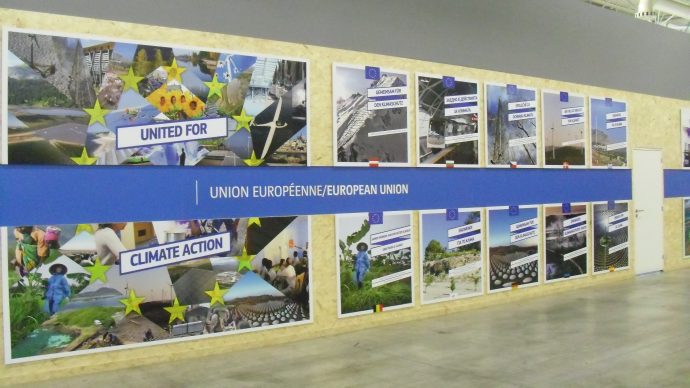The European Commission today presented a proposal for the European Union to ratify the Paris Agreement, the world's first universal, legally binding deal to tackle climate change, writes the Commission in a press release Friday.
The Commission's proposal comes just weeks after the EU and 174 countries signed the landmark agreement at a ceremony.
EU Commissioner for Climate Action and Energy Miguel Arias Cañete said:
"After Paris, the EU is doing its homework. We are determined to maintain the momentum and spirit of Paris and ensure the early ratification – and the swift implementation – of this historic agreement”.
“Today's proposal demonstrates our continued commitment to lead the global clean energy transition and build a modern, sustainable and more climate-friendly economy. I am confident that the European Parliament, Council and Member States will complete the respective ratification procedures promptly."
In line with the 2030 climate and energy framework agreed by EU leaders in October 2014, the Commission intends to propose in the coming months the Member State targets to reduce emissions in those sectors not covered by the Emissions Trading System, such as transport, agriculture and buildings.
The Commission will also propose how to integrate land use into the 2030 framework and a communication on low-carbon mobility.
The Commission's proposals this summer, together with the revision of the Emissions Trading System, will deliver the remainder of the EU's commitments under the Paris Agreement and are an integral part of Energy Union's ambitious and forward-looking climate policy.
The Paris Agreement
The Paris Agreement, adopted on 12 December 2015, is a global milestone for enhancing collective action and accelerating the global transformation to a low-carbon and climate-resilient society.
It sets out a long-term emissions reduction goal of keeping the global temperature increase well below 2°C while pursuing efforts to limit the rise to 1.5°C.
Following the successful conclusion of the COP21 in Paris, the Commission in March 2016 presented a full assessment of the Paris Agreement.
The Paris Agreement is an opportunity for the modernisation of the European economy and the creation of jobs and growth. It is a central element in achieving broader sustainable development goals, as well the EU's priorities of investment, competitiveness, circular economy , research, innovation and energy's transition.
The Commission, in line also with the conclusions of the G7-summit in May 2016, calls for the approval of the Paris Agreement as soon as possible.The Paris Agreement will enter into force after it has been ratified by 55 countries, accounting for at least 55% of global emissions.
Next steps
The Commission's proposal for the ratification of the Paris Agreement on behalf of the EU is now with the European Parliament and Council for their approval.
he Commission's proposal takes the form of a Council decision. The consent of European Parliament is required prior to the adoption of the decision by the Council. Once approved, the Council will designate the person(s) who will deposit the ratification instrument, on behalf of the European Union, to the United Nations Secretary- General.
In parallel the EU Member States will ratify the Paris Agreement individually, in accordance with their national parliamentary processes.















